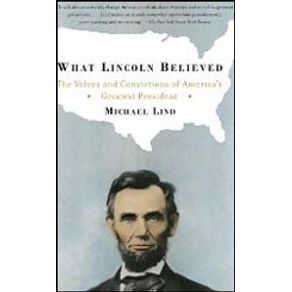WHAT LINCOLN BELIEVED
Favoritar
De: R$ 200,60Por: R$ 140,42ou de
Preço a vista:R$ 140,42
Economia de R$ 60,18Calcule o frete:
Para envios internacionais, simule o frete no carrinho de compras.
Calcule o valor do frete e prazo de entrega para a sua região
Sinopse
Ficha Técnica
Especificações
| ISBN | 9781400030736 |
|---|---|
| Pré venda | Não |
| Peso | 411g |
| Autor para link | LIND MICHAEL |
| Livro disponível - pronta entrega | Não |
| Dimensões | 23 x 16 x 1 |
| Idioma | Inglês |
| Tipo item | Livro Importado |
| Número de páginas | 368 |
| Número da edição | REPRINT EDITION - 2006 |
| Código Interno | 223089 |
| Código de barras | 9781400030736 |
| Acabamento | PAPERBACK |
| Autor | LIND, MICHAEL |
| Editora | ANCHOR BOOKS |
| Sob encomenda | Sim |


